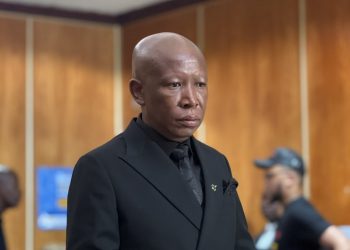Members of the South African National Defence Force (SANDF) demonstrated extraordinary bravery during a fierce 24-hour battle against M23 rebels in Sake, eastern Democratic Republic of Congo (DRC), last week. Despite losing nine soldiers in the clash, the SANDF reportedly killed hundreds of rebels in what has been described as a heroic stand against overwhelming odds. The battle took place just 23 kilometers from the volatile city of Goma, a hotspot in the ongoing conflict in the region.
The details of the intense firefight were revealed to *Sunday World* by an award-winning journalist who witnessed the events while conducting research for his book. The journalist, who requested anonymity due to his prominence in the region, described the battle as “fearsome and bloody,” lasting an entire day. He noted that the SANDF soldiers were left exposed after members of the Armed Forces of the DRC, who were leading the front line, surrendered to the M23 rebels. Additionally, some Burundian troops, who were providing backup to the SANDF, fled or surrendered during the fight.
Despite being ambushed and outnumbered, the South African soldiers fought valiantly, reportedly killing at least 600 M23 rebels. The journalist praised the SANDF’s resilience, stating, “Your soldiers fought like heroes and killed more than 100 of the M23 rebels. I was there and saw it with my own eyes.” Other sources suggested the rebel death toll could be as high as 960, though these figures remain unconfirmed.
The battle also claimed the lives of one Tanzanian and two Malawian soldiers, who were part of the Southern African Development Community (SADC) peacekeeping mission. In total, 14 South African soldiers have died in recent clashes, with three killed by a mortar attack on their base and another succumbing to gunshot wounds in hospital.
Deputy Defence Minister General Bantu Holomisa confirmed that the SANDF had received similar reports of the soldiers’ heroic actions. “Our troops fought well and repelled those troops in a big way,” Holomisa said. He also acknowledged that the SANDF had been let down by their allies, particularly the DRC forces, who abandoned their positions during the battle. “The troops of the DRC surrendered. They were supposed to cover another flank; they disappeared, and all of a sudden SA troops ended up being attacked by mortars and so on,” he added.
In a remarkable display of adherence to international war conventions, both the SANDF and M23 rebels raised white flags during the battle to allow for the collection of dead bodies and the treatment of the wounded. The journalist who witnessed the event confirmed this, stating, “The flags were raised to allow the M23 rebels to collect the bodies of their dead soldiers; they were lying everywhere.” Holomisa and the SANDF also corroborated this account, noting that the gesture enabled South African soldiers to evacuate their injured comrades for medical attention.
Following the battle, reports emerged that the M23 rebels cremated their dead to conceal the extent of their losses. This act has raised questions about the rebels’ attempts to downplay their defeat.
President Cyril Ramaphosa, the commander-in-chief of the SANDF, paid tribute to the fallen soldiers, describing them as “brave soldiers who were dedicated to their mission and committed to peace.” He called on all South Africans to support the nation’s armed forces, who continue to risk their lives in the pursuit of stability and peace on the continent.
The battle in Sake highlights the challenges faced by peacekeeping missions in the DRC, where armed groups like M23 continue to destabilize the region. The SANDF’s performance, despite the tragic losses, has been widely praised as a testament to their training, discipline, and courage. However, the incident also underscores the need for stronger coordination and support among allied forces to ensure the success of such missions.
As the DRC remains embroiled in conflict, the bravery of the SANDF serves as a reminder of the sacrifices made by peacekeepers in one of the world’s most volatile regions. Their actions in Sake will be remembered as a defining moment in South Africa’s contribution to continental peace and security.





















